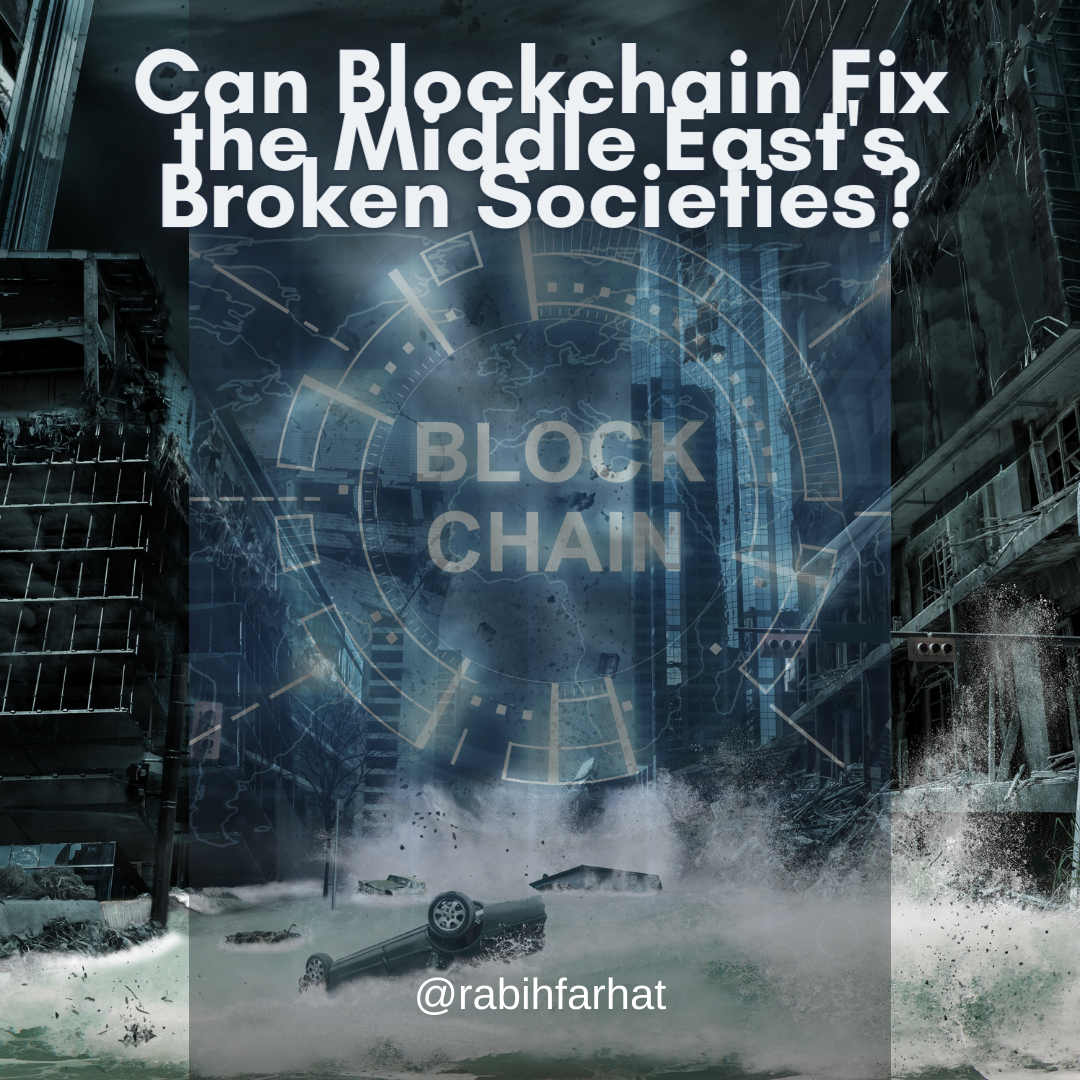Introduction
For more than a hundred years since the fall of the Ottoman Sultanate and the establishment of the states of the region, no regime has been able to achieve the mission of the modern state in transforming a society of groups into a society of individuals or citizens. Still, on the contrary, the strength of sectarian, ethnic, tribal even familial groups empowered, and their conflicts intensified.
And the path of the change movements throughout this time has not been better than the path of the ruling regimes. Taking for example the Marxism between many movements.

As a force for change, perhaps Marxism showed its maximum power here in Lebanon during the civil war that started in 1975 and lasted for 15 years, that was at the same time as the pinnacle of the Soviet Union's influence, and at a time of dominance of Marxist thought over the change and liberation movements in the world. But Marxism’s view of the Lebanese reality at that time was wrong, which indicates exactly the extent of its failure if it ever came to authority.
While the conflict in Lebanon was visible and sectarian “par excellence”, the Marxists insisted on their theory that the sectarian conflict had ended in Lebanese society and the class struggle was established instead. To find a way out of this vision, they invented the “sect-class theory”. But later, many of their leaders showed self-criticism, admitted their mistakes, and acknowledged their share of responsibility in the wars that destroyed the country.
Moreover, it is well known that major tremors have always been a path to societal transformations.So will the global turmoil that Lebanon and the Middle East region are experiencing today open this path?To be honest there are no indications of this.
For a century, the dream of societal change in the region has stagnated. This is despite the major dangerous transformations that have taken place in the region. Revolutions, wars of liberation, and the fall of regimes have always been a path to profound changes in the modern world. But this did not apply to this region.
The vision of change is derived from the experience of the West in modern times, from the renaissance of the sixteenth century in Europe until today, and aims to identify with it, in one way or another, as a model and example.
But if we compare the current Eastern reality with the Western reality, what do we find?
We find that at the level of societal structures, the society of groups in the Levant still reminds (in many but not all of its sides) of what Western European society was like at the beginning of the eighteenth century, before the Industrial Revolution. At the level of mental structures and the movement of development, the society of the Levant is reminiscent, in many ways as well, of what European societies were like in the fifteenth century, before the Renaissance.
Regarding the concept of the people, in comparison with the European entities, where the peoples of individuals/citizens are, the entities of the East do not include fully formed peoples, but rather “projects of peoples”, in which many groups that are distinct from one another, incapable of deep integration or unification, coexist.
Is there still hope for the Orient to move from a society of disparate groups to a society of individuals/citizens?
What further clogs the horizon is the fog of prevailing changeable words, concepts, and sayings, where a lot of talk replaces reality and does not lead anywhere. Since the Arab intellectual awakening in the nineteenth century until today, there has been an infinite amount of proposals for change, in an infinite amount of literature, research, articles, calls, and speeches, all converging on the abolition of sectarianism, the rejection of tribalism and clannism, the condemnation of fanaticism, and the denunciation of all forms of political feudalism. And all forms of corruption and exploitation, calling for reform, openness to others and the world, achieving equal opportunities, raising the status of the critical mind, and other proposals.
But all this long intellectual and verbal accumulation did not reach any results on the ground. It pours and pours into the same vicious circle in which the dream of change has revolved for a hundred years. One magical little phrase is missing: “What to do?”
What are clear, precise, and actionable methods of action to achieve change?There is a huge gap in this place, which is difficult to fill.
Conclusion
Is it impossible to answer “what to do?” To achieve change in the societies of the Levant?After all the time that has passed and that will pass, there is no doubt that this impossibility is due to deep structural factors that cannot be overcome. What if among these factors is the nature of the state itself, where groups coexist according to the dialectic of attraction, repulsion, and mutual fear?
On the other hand, there is no doubt that the Western model has lost some of its glow or perhaps much of it, and that societies of individuals/citizens are also suffering from problems that are not easy to solve. But despite this, there is no integrated model of modernity around us that we can stop at, evaluate, criticize, and draw inspiration from other than this model.
But if we look more closely and deeply, we will find the newest model that is capable of improving and polishing outdated systems, which is through applying blockchain technology and cryptocurrencies.
Here I ask: Will Blockchain and digital currencies bring all the required real changes?
*Image designed using Canva
Posted Using InLeo Alpha